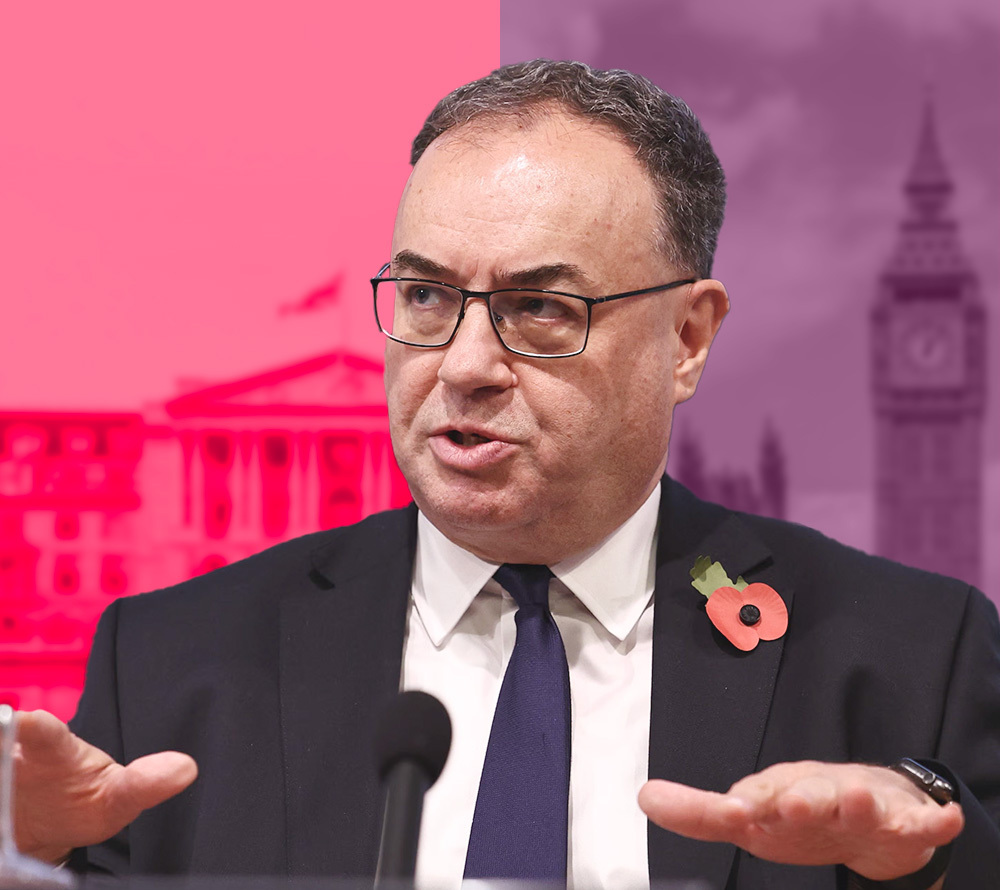During the Bank of England’s Monetary Policy Committee meeting this week, the committee decided to lower interest rates by 0.25%. This brings the Bank of England base rate down from 4.5% to 4.25%, a continuation of the decreases which began last summer.
Market participants have been anticipating a rate cut for some time now, as inflation levels – as measured by the Consumer Price Index, or CPI – have fallen to a manageable range between 2-3%. The latest inflation data for March puts UK CPI at 2.6% (vs. March 2024), which was down from February’s 2.8% (vs February 2024). While the BoE targets a 2% inflation rate, the current level of 2.6% still sits around 30% above that goal.
In light of the recent cut, we think it’s worthwhile assessing what rate cuts mean for savers and investors alike.
For savers in cash ISAs
A fall in the Bank of England’s base rate is important for savers, as it’s the rate the Bank charges to commercial banks and other financial institutions. In effect it works like a tide which raises, or lowers, savings boats.
For our cash ISA customers, the variable rate offered by the money market funds is likely to decrease in the coming days, broadly in line with the recent rate cut.
We may see rates continue to come down through the year, particularly if economic activity doesn’t pick up, but it depends on a variety of factors. Though levels are still well above what was available before 2022, it is clear that there is a downward trend from the higher rates we have enjoyed over the past few years.
For any short-term planning, perhaps over a 1-2 year timeframe, cash is still great for preserving wealth without assuming much risk. However, if interest rates continue to decline, the long-term outlook for cash savers could become increasingly challenging. This is especially true if we consider inflation may prove to be stickier than initially anticipated, as the real value of cash steadily diminishes.
In this environment, cash may struggle to keep up with rising prices and reduce long-term purchasing power. In this sense, there is a longevity risk that your total wealth will actually lose its value over an extended period of time.
For investors
Interest rate cuts are generally positive for most assets in financial markets, if they are not a reaction to a recession.
If you own equities – shares in companies – then rate cuts are usually positive. For companies, reduced interest rates means that debt-servicing is cheaper; paying lower rates of interest on loans and finance arrangements means that less money is spent paying off debt, and therefore that more of their capital can be used for reinvestment in the company’s expansion. It ultimately makes debt cheaper. Most companies rely on using debt – in one form or another – to grow their business, so getting ‘cheaper’ debt is usually positive for companies and their investors. ‘Risky’ assets, like shares in companies, tend to perform well in lower-rate environments since the costs associated with growth have come down. Indeed, much of the equity growth through the 2010s and covid-era can be attributed to historically low interest rates.
If you own bonds, then rate cuts are usually – somewhat counterintuitively – also a positive. The reason for this is that the price of bonds on the market is largely determined by the prevailing interest rate, as there is an inverse relationship between interest rates and bond prices.
When interest rates rise, all newly issued bonds offer higher yields than their predecessors, making existing bonds with – the now lower rates – less attractive. As a result, the prices of those older bonds drop, so their yields become competitive with new issues. Conversely, when interest rates fall, existing bonds with higher fixed rates become more valuable, causing their prices to rise.
For example, imagine you bought a bond that pays a 3% annual interest rate. If market interest rates rise to 5%, new bonds offer better returns, so your 3% bond becomes less attractive; its price must drop to offer a competitive yield. Conversely, if rates fall to 2%, your bond paying 3% is more valuable than the newly issued bonds, and so its price increases.
For savers and investors
Despite inflationary fears in the UK dropping marginally in the medium term, there are still concerns that higher prices may persist as trade disputes continue and utility prices climb.
Cash remains a fantastic tool for short-term planning and overall financial stability, though a falling interest rate environment changes the equation somewhat. As savings rates come down, the opportunity cost of holding too much increases for those saving over a longer period of time. Ultimately it presents a new challenge for savers, especially those relying on cash to grow their overall wealth.
With interest rates expected to fall further, the returns from cash will likely struggle to keep pace with inflation. In contrast, if we look back historically, long-term investments have a proven track record of preserving and growing wealth over time. Even during periods of uncertainty, globally diversified investment portfolios have kept pace with and even beaten inflation, helping to protect wealth over the long-run.
The key to any successful saving plan is to set up the right structural foundation which is specific to you. This includes knowing what your goals are, setting out and adhering to a well defined strategy, and also having a team of experts on hand to manage the investments.
Here at Moneyfarm we always have our team of Investment Consultants on hand to help you navigate your finances, so if you’d like to get in touch with us please book an appointment.
Please remember that when investing, your capital is at risk. The value of your portfolio with Moneyfarm can go down as well as up and you may get back less than you invest. Past performance is not a reliable indicator of future performance. The views expressed here should not be taken as a recommendation, advice or forecast. If you are unsure investing is the right choice for you, please seek financial advice.
*As with all investing, financial instruments involve inherent risks, including loss of capital, market fluctuations and liquidity risk. Past performance is no guarantee of future results. It is important to consider your risk tolerance and investment objectives before proceeding.





